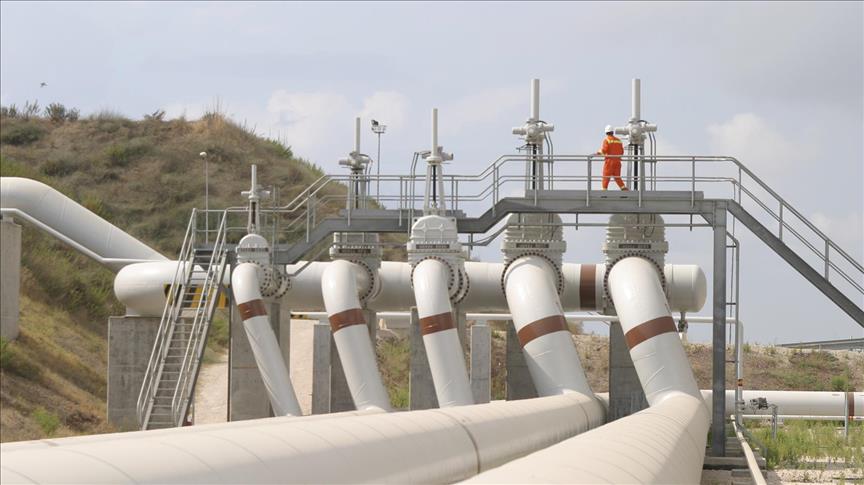The record prices of natural gas and coal, due to the supply-demand imbalances in global markets, could create further economic risks for import dependent economies that will have to face higher energy bills to meet an increasing demand in their domestic markets.
European natural gas prices surged by over 600% compared to September 2020, hitting over €100 per megawatt-hour in Dutch Title Transfer Facility (TTF) while coal prices quadrupled as the supply fell short of meeting the fast-growing demand.
The energy exporting economies will see the benefits of the increasing prices like Russia, Alexander Plekhanov, director for transition impact and global economics at the European Bank for Reconstruction and Development (EBRD) told Anadolu Agency in an interview.
'If anything, I would imagine a slight positive revision to [these energy exporting] economies as the major beneficiaries of higher energy prices,' he said.
Plekhanov noted that, in terms of the economies where the EBRD operates, there are some weaker ones depending on imports, which could face negative economic impacts of the record prices.
The same prospect could be valid for China, world's biggest energy consumer with a high dependence on imports.
Goldman Sachs last week cut its forecast for China's economic growth due to the energy crisis in the country, to 7.8% from 8.2% year-on-year expansion as the country faces widespread power cuts due to the insufficient supply.
- Supply-demand imbalances not only due to pandemic
After a decline in global energy demand because of the lockdowns and restrictions against the spread of COVID-19 pandemic last year, the recovery of economies caused a shock of unexpected demand growth and supply shortage.
'There is a COVID-19 related part in the increasing energy prices but there is also a part that is unrelated to the pandemic,' Plekhanov said.
He said that the demand declined considerably due to the restrictions against the spread of COVID-19 during the year.
According to International Energy Agency, global energy demand declined by 3.8% in the first quarter of 2020, with most of the impact felt in March as confinement measures were enforced in Europe, North America and the rest of the world.
Global electricity demand fell by 2.5% while coal consumption by 4% in 2020, marking its steepest drop since World War 2. However, the decline was concentrated mostly in the early months of the year.
Global natural gas demand recorded a drop of around 2% in 2020 compared to the previous year while oil demand fell by 9%, being hit the hardest due to the pandemic.
Plekhanov noted that with the rebounding economies the demand increased, particularly in service and manufacture sectors which consume gas and oil.
The IEA estimated earlier that the global energy demand will grow by 4.6% this year with the rebound in the economies.
The IEA found that by the end of 2020, coal demand had surged above pre-COVID-19 levels, driven by Asia where economies were fast rebounding and December was particularly cold. Coal use in the fourth quarter was 3.5% higher than in the same period in 2019, contributing to a resurgence in global CO2 emissions.
However, Plekhanov said, the part that is unrelated to COVID-19 is that there are less fossil fuels available than it used to be as countries are trying to tackle climate change by divesting investments from fossil fuels sector.
'Energy consumption is growing because the population is growing. So, we need more energy but where it should come from? It can come from renewables but not necessarily reliably,' Plekhanov said. 'We have a situation in September in Europe that there was very little wind so the we suddenly need energy from somewhere else and that creates the bottlenecks. When there is less investment in new oil and gas, then it becomes more expensive.'
'If we want to tackle climate change and realize green energy transition, we have to make also fuel energy much more expensive and it has the way to go. The problem is the political willingness to do so,' he noted.
Plekhanov said that a way should be found to pay for the green transition either by taxes or via consumers paying for it and this is where the policy needs to move forward.
By Nuran Erkul Kaya
Anadolu Agency
energy@aa.com.tr


